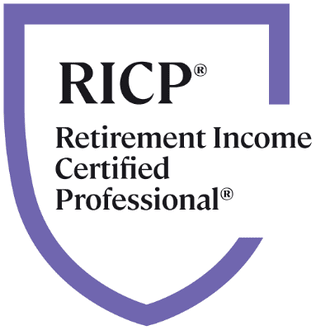
Is there a simple way to know if you have enough saved in your 401(k) plan?
A question that many financial planners get is: do I have enough to retire? In the past, this was an easy calculation, and you would get a defined benefit pension and know the amount of income you would get each month in retirement. Unfortunately, we are not so fortunate, with many corporate employers moving away from pensions. The 401(k) plan is the new choice of retirement savings for most corporate employees. So, knowing what the magic retirement number is is essential.
There are four basic methods to quickly determine if you have saved enough or are saving enough for retirement.
Age-Based Approach
You could use Fidelity Investments' easy and quick approach to retirement savings based on your age. Essentially, Fidelity provides a chart, where you can look up your age, and it will say what you should have in your retirement plan. For example, someone in their 30s should have 1X their current salary, and someone in their 50s should have 6X their current salary. Be aware this is a rough estimate, but it will give you an idea if you are on track for retirement. However, it does not consider other sources of income in retirement, such as Social Security or a pension. It also does not consider what your spouse might have saved in retirement.
Retirement Calculators
Another more accurate way to figure out if you have enough saved for retirement is to use an online retirement calculator. Most major brokerages, such as Fidelity, Schwab, and so forth, have this available on their websites. You will need information about what is in your current 401(k) account, how much you’ve saved so far, and the expected investment return you hope for. This method will provide a more accurate picture of your retirement number, but it involves more knowledge of the numbers that go into the calculations. In addition, if the input is incorrectly entered, the calculations can be wildly off.
The 4% Rule
A third method to determine your magic retirement number is not to calculate the amount but to use the so-called 4% rule. The 4% rule is that you can make withdrawals up to 4% of your 401(k) per year, and you should not run out of money in retirement. This also is a simple way to figure out if you have enough for retirement, like the age-based system, but there are some issues here. Can you live on 4% of your 401(k) plan each year since that is the maximum you can withdraw each year? What about how your 401(k) is allocated in terms of investments? This will have an impact on the actual return that you get. The 4% rule assumes that you will get at least a 4% return on your investments each year to keep the principal intact; this may not be realistic.
I presented three simple ways to determine your retirement magic number. However, the best method is to talk to a financial planner to examine your whole financial situation and develop a financial plan to make sure you can reach your retirement goals.
Saving 20%
Another simple approach is to save around 20% for retirement. What does this involve? First, max out your employee contribution to your 401(k) plan on a yearly basis. Second, contribute to a Roth IRA. Third, save in a money market, CD, savings account, or brokerage account additional money to get to 20% of your household income. Don't just save up to your match; you are saving for retirement.
While there's no one-size-fits-all answer to how much is 'enough' in your 401(k), these simple guidelines can help gauge your progress. Regular assessment, wise investments, and a clear understanding of your financial goals will empower you to enjoy a comfortable retirement. Remember, the key is to start early, stay consistent, and seek professional advice when in doubt. With careful planning, you can look forward to your retirement years with confidence and peace of mind. Contact me on the contact page below if I can be of service.
*This content is developed from sources believed to be providing accurate information. The information provided is not written or intended as tax or legal advice and may not be relied on to avoid any Federal Government tax penalties. Individuals are encouraged to seek advice from their own tax or legal counsel. Individuals involved in the estate planning process should work with an estate planning team, including their own personal legal or tax counsel. Neither the information presented nor any opinion expressed constitutes a representation of a specific investment or the purchase or sale of any securities. Asset allocation and diversification do not ensure a profit or protect against loss in declining markets.





